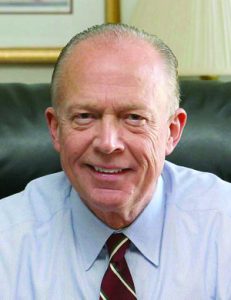The search for an autism breakthrough
June 8, 2014By Richard Eckstrom, S.C. Comptroller
In early May, thousands of people turned out at Finlay Park in Columbia for “Strides for Autism,” a fundraising walk to raise support for the South Carolina Autism Society. And about a month earlier, a similar event at Heritage Park in Simpsonville saw an impressive turnout.
It was heartening, but not surprising, to see those events so well-attended. Over the years, as I’ve met and spoken with families affected by autism, I’ve been moved by how strongly they support each other and rally around a shared cause.
Autism is a neurodevelopmental disorder. Symptoms often emerge within the first year of a child’s life. Those affected have difficulty developing typical communication and social skills. There’s no known cure for autism, but early intervention is important in helping those with autism to develop better language and social interaction skills.
Autism falls within a wider category known as Autism Spectrum Disorder (ASD) which includes a variety of related disorders. One of the frustrating things about ASD is that it is largely a mystery. Experts remain baffled about its causes, although it’s believed that a number of factors, both genetic and environmental, play a role.
Recent news about ASD is both frightening and promising.
On one hand, there’s shocking new data which shows that ASD affects many more young people than originally believed; one in 68 children have some category of ASD, although that high number could be partly due to the expanded definition of the disorder. According to the website of the Centers for Disease Control and Prevention, “A diagnosis of ASD now includes several conditions that used to be diagnosed separately: autistic disorder, pervasive developmental disorder not otherwise specified (PDD-NOS), and Asperger syndrome.”
On the promising side, researchers are making rapid progress in the ongoing quest to discover more about ASD.
And though it’s a difficult foe, many children with ASD can benefit from proper treatment — which is why affected families pull together as they do to unravel the mystery. The more that’s known about ASD, the more we can do to help children with autism live better, richer lives as they develop.
Fortunately, there is help and hope for families dealing with the daunting challenge of raising a child with autism. South Carolina has plenty of wonderful organizations – such as the S.C. Autism Society and the Lowcountry Autism Consortium – that serve as advocates and provide support for ASD families, and work to raise community awareness of the disorder.
The South Carolina Early Autism Project – with clinics in Sumter, Charleston, Greenville, Columbia and Rock Hill – provides a promising form of treatment known as Applied Behavior Analysis Therapy.
The Autism Academy of South Carolina, operating year-round day programs in Columbia, is a special school where people with ASD, from age 3 to 21, can receive individualized educational instruction.
The Project Hope Academy, based in Woodruff, offers a wide range of therapeutic services for children and support services for family members.
And Dogs for Autism, a Greenville-based nonprofit, trains dogs to assist in behavioral therapy sessions with autistic children.
For families of those who have been diagnosed, learning about ASD and the availability of help is an ongoing effort. We can all stand with them by supporting the people and organizations that support them.
The search for a breakthrough deserves our concern and support.














